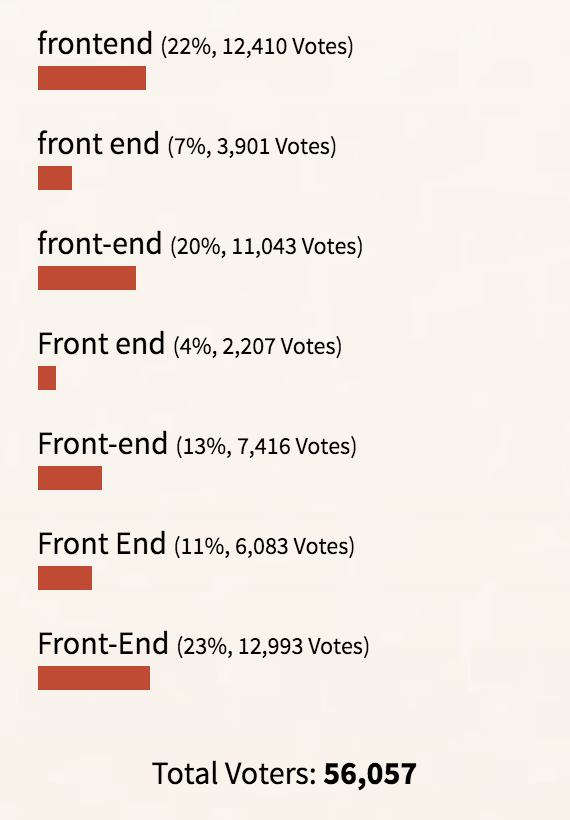Whether we admit it or not, public human behavior is influenced, nay, dictated by certain norms that polite, civilized society deems acceptable. We don’t get riled up over innocent remarks by strangers, we don’t call each other derogatory names or loud obscenities, and we certainly do not relentlessly follow one another to forcefully offer the smallest bit of criticism about the target’s latest creation or thought.
Unfortunately, the same rules don’t seem to apply online. Many think that all the negativity on the Internet stems from factions of users hiding behind their online personas and aliases to form some sort of worldwide anonymous network of troublemakers. We know these peeps as trolls.
The Troll Calls For Attention
The term “troll” refers to an online user who posts replies, comments, or content in such a manner as to spark conflict. It is the troll’s mission – and sole source of joy – to cause discord and displeasure, to provoke other users into engaging them in often senseless debate. Other names they are identified with include “Haters”, “Flame-baiters” and “Cyberbullies”
This behavior was first documented on Usenet groups in 1999, in a paper by Judith Donath. “Trolling is a game about identity deception, albeit one that is played without the consent of most of the players,” writes Donath.

In a recent study by the University of Manitoba, trolling was shown to have a positive correlation with sadism, psychopathy, and Machiavellianism. This, in essence, defines trolling as the conscious desire to deceive others into falling into a position where they are likely to suffer, brought about by the troll’s immense ego and absolute lack of remorse or empathy.
In essence, trolling stems from the sadistic joy in seeing others placed in uncomfortable situations.
In an even more recent study by researchers at the University of New South Wales, which examines the gender dynamics of players in Halo 3, it was found that gamers who troll women are literally losers. “It’s the fear of losing to a woman that kind of irks a lot of men.” The study also finds that the winners find no reason to react negatively to women players.
Inside the Troll’s Mind
So what motivates the troll to rear its ugly head? Let’s take a peek into what’s happening inside their minds. At the very core of this issue lies what psychologist John Suler called the online disinhibition effect. “While online some people self-disclose or act out more frequently or intensely than they would in person.”
Based on his studies, Suler determined that there are six factors that influence how people behave and communicate online.
1. Disassociative Anonymity
One of the biggest factors that propagate online disinhibition is the knowledge that, no matter what you do or say online, your real-life persona – identity, actions, and reputation – remains untarnished, in a sense. In other words, there is a disconnect between the physical “you” and the virtual “you.”
2. Invisibility
Expressing your thoughts online allows you to be not visible to the recipient. You are, for all intent and purposes, “invisible” to the rest of the world. Being online places no pressure upon the user to dress, speak, think or act according to rules on proper etiquette and communication. No one is present to gauge your tone or judge your actions, and thus you have the freedom to remove all filters and inhibitions from your mind, instead of giving consideration and thought to your actions.
3. Asynchronicity
In the same way the lack of an actual connection between real-life and online identities encourages troll behavior, the knowledge that conversations do not actually happen in real-time imbues the user with quite a bit of confidence to be more blunt, passive-aggressive, and even outright argumentative when it comes to commenting.
4. Solipsistic introjection
If the other side can’t see you, allowing you to dress and act as you please, the same occurs on your side: you can’t see them too. This has consequences in our way of interaction. In a study from the University of Haifa, findings revealed that the lack of eye contact also limits a person when it comes to understanding another’s thoughts, feelings and nonverbal cues.
5. Dissociative imagination
Staring at a computer screen and witnessing what unfolds within the boundaries of its pixel-laden frame further distances a user from the reality of the words used. We forget that what we say may actually have an impact on someone who resides beyond the virtual world. It becomes easier to say hurtful things and throw insults around when you remain blissfully unaware or in denial of their real-world repercussions.
6. Minimising authority
Lastly, there is no dedicated peacekeeping or law enforcement task force that can punish you for stepping out of line on the Internet. In fact, the line isn’t even that clear to begin with – how far can you push for your opinions before you come off as racist, sexist, insensitive, or absolutely devoid of empathy?
Are we too far gone?
Naturally, some websites have taken steps to curb-stomp trolling. Many websites, such as Popular Science, have either disabled the option to comment on articles or maintain a greater degree of admin control over their own forums to prevent trolls from crawling out of the woodwork.
Other websites require registering your name, online account, and even telephone number before you are granted access, in order to prevent identity theft and to make them supposedly more secure.
Still others maintain strict moderation, even going so far as to ban people outright for exhibiting and encouraging unruly behavior.

Unfortunately, no matter what guidelines or rules are imposed, the very human desire to participate in entertaining activities, even when another person’s life, reputation, and well-being are at risk, remains ever-present. While certainly not all Internet users exhibit trollish behavior, the few ones that do are often the loudest, and hardest to miss.
It is difficult to imagine a world without trolling. Half of the population are irked by it, while the other half are entertained. If you ask people if there’s still a chance to rectify this problem we are facing, they may tell you that it may be impossible to eliminate this unpleasant trend among today’s internet-connected youth, that we should just give up and live with it.
Remember It’s A Human Behind The Screen
It only takes five minutes to shift anyone’s perspective about the lack of etiquette on the web. You can teach it to your friends, kids, colleagues, and even to yourself. And it all begins by remembering that there’s a human behind every words, photos, and videos. Whatever it is you want to say or comment with, if you wouldn’t say it to their face, you probably shouldn’t say it to them online.
This is not taught in schools. Children just gradually learn how to navigate and contribute online. But if we all take the time to make everyone understand that behind every computer screen are a multitude of other humans, who are just as alive as you are, then we might start respecting one another again on the web.

I will end this article by quoting Kurt Vonnegut, one of the greatest authors to have ever lived.
“Hello babies. Welcome to Earth. It’s hot in the summer and cold in the winter. It’s round and wet and crowded. On the outside, babies, you’ve got a hundred years here. There’s only one rule that I know of, babies – God damn it, you’ve got to be kind.”
More on Hongkiat: 6 Psychological Reasons Behind People’s Online Behavior





































No Comments